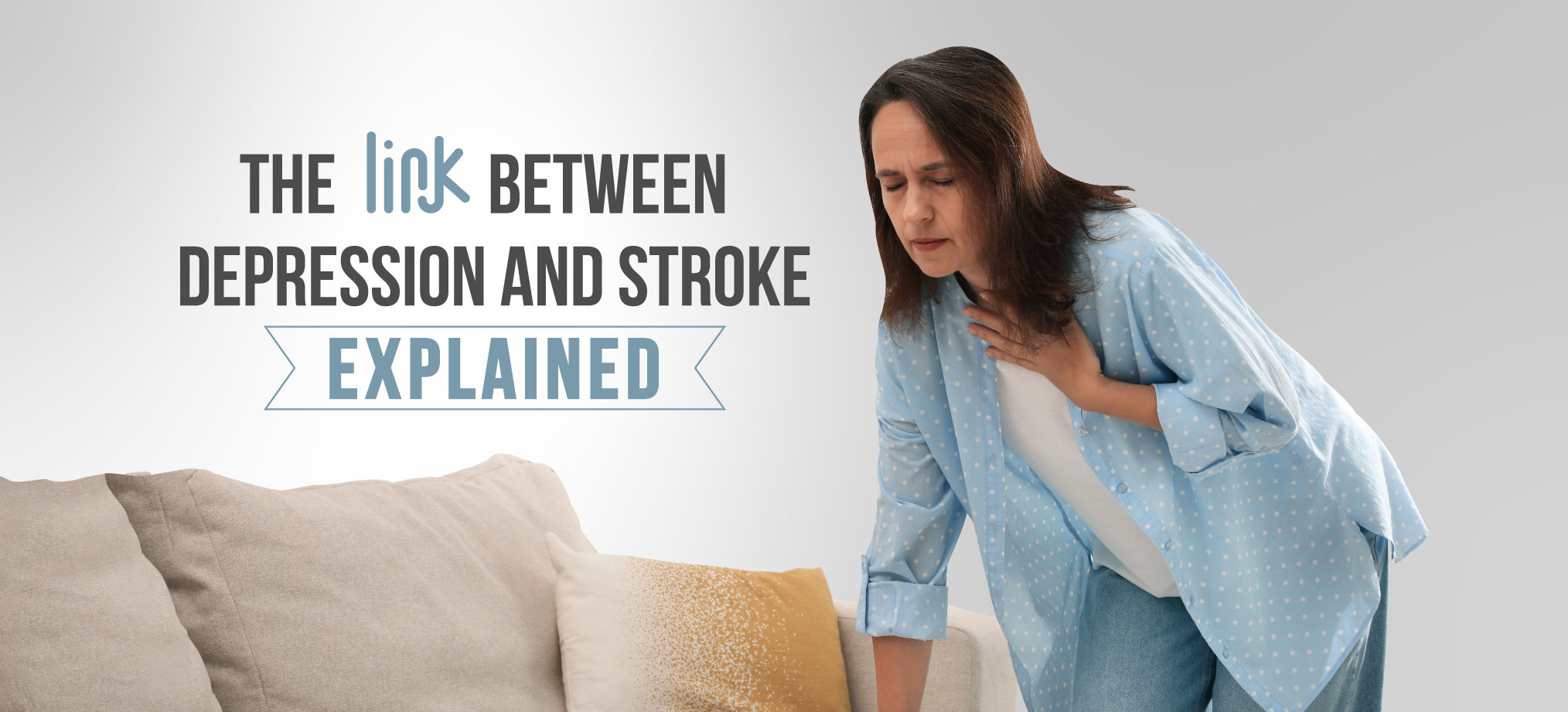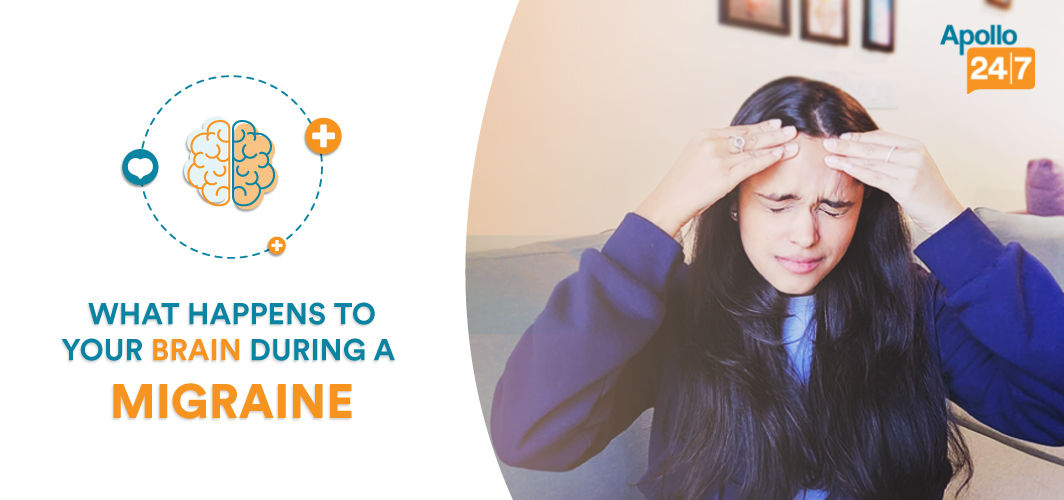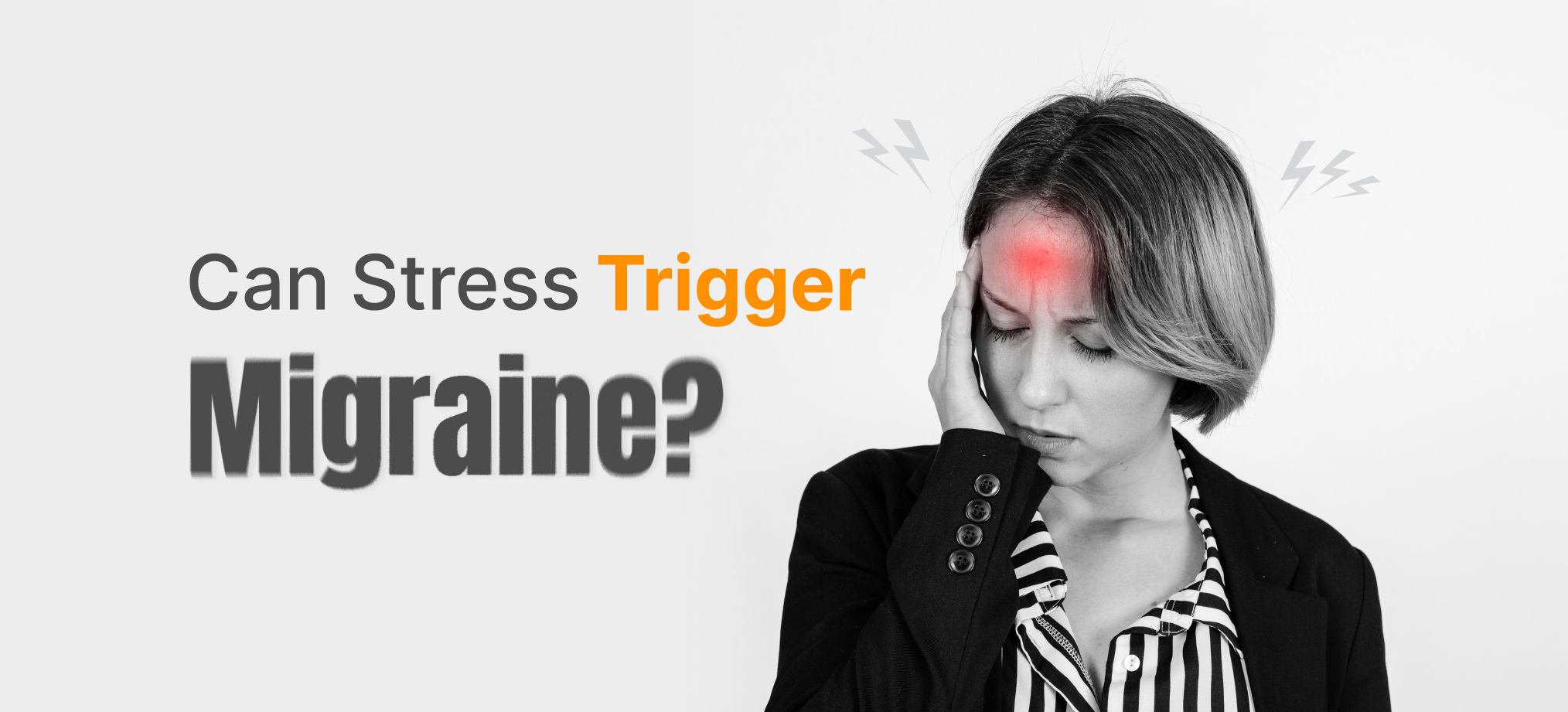Neurology
Depression Can Increase The Risk Of Stroke…Know How!
3 min read
By Apollo 24|7, Published on - 31 March 2023, Updated on - 21 June 2023
Share this article
0
1 like

Depression is a widespread mental health issue that affects many people globally. It can make a person feel helpless, anxious, and gloomy. But that’s not all! Depression can also exhibit physical symptoms such as breathlessness, insomnia and chest pain. Furthermore, recent research has shown that depression can increase the risk of getting a stroke. Let us know more about this connection.
What Is A Stroke?
The brain requires a steady flow of oxygen and nutrients to work properly. However, when that flow is cut off (either due to a clot or an artery burst), the brain cells start to break down, resulting in a stroke. This can cause different symptoms like weakness, tingling, trouble talking, drooping of the face, and vision problems.
Understanding The Link Between Depression And Stroke
According to studies, those who are depressed have a greater risk of having a stroke than those who do not suffer from the condition. Several reasons for this connection include:
- Depression causes inflammation in the body which results in the development of plaque in the arteries, thereby increasing the risk of stroke.
- Depression can cause inflammation in the body, damaging blood vessels and increasing the risk of blood clots.
- Depression can cause changes in behaviour, such as poor diet and lack of exercise, which can contribute to other risk factors for stroke.
On the other hand, stroke can also contribute to depression. A stroke can profoundly impact an individual's physical and emotional well-being, leading to feelings of sadness, anxiety, and hopelessness. The physical changes often accompanying a stroke, such as a difficulty speaking or moving, can also make it harder for individuals to engage in activities that they once enjoyed, further exacerbating feelings of depression.
Those who have had a stroke or suffered depression should be mindful of the potential of a connection between these two diseases. People can enhance their general health and quality of life by treating depression and taking measures to lower their risk of stroke.
Let’s look at some suggested solutions for how people might lower their risk.
Solutions To Reduce The Risk Of Stroke
Conversely, there are a variety of measures that people with depression can take to lower their risk of stroke. These consist of the following:
- Seek treatment for depression: It is important to get counselling, medicine, or a mix of both to treat depression.
- Exercise regularly: Exercise can aid in lowering stress levels and enhancing overall health, which can help reduce the risk of stroke.
- Eat a healthy diet: A good diet can help reduce inflammation, control cholesterol levels, and sustain a healthy weight, thereby reducing the risk of stroke.
- Manage stress: Yoga, meditation, and practising mindfulness can help relieve stress and reduce inflammation in the body.
- Quit smoking and limit alcohol intake: Give up on smoking and alcohol to reduce inflammation in the body, thereby reducing the risk of stroke.
If you or your loved one is dealing with depression or has a history of stroke, it is essential to get regular consultations from a neurologist. For more information,
Consult Apollo's Expert Neurologists
Medically reviewed by Dr Sonia Bhatt.
Neurology
Leave Comment
Recommended for you

Neurology
What Happens to Your Brain During a Migraine?
Migraines are debilitating headaches that make us hypersensitive to light, sound, and physical activity. This blog explains what happens to brain during migraines, including how to prevent and treat them. Check it out.

Neurology
Caregiving For Alzheimer's Disease: The Neglected Side Of The Story
Alzheimer’s disease doesn’t have a definitive cure, however, adequate treatment and support can help improve the quality of life of those affected and those caring for them.

Neurology
All You Need To Know About Migraine
Migraine is a type of headache that can cause severe, nagging pain but with appropriate treatment, the symptoms can be managed effectively.
Subscribe
Sign up for our free Health Library Daily Newsletter
Get doctor-approved health tips, news, and more.
Recommended for you

Neurology
What Happens to Your Brain During a Migraine?
Migraines are debilitating headaches that make us hypersensitive to light, sound, and physical activity. This blog explains what happens to brain during migraines, including how to prevent and treat them. Check it out.

Neurology
Caregiving For Alzheimer's Disease: The Neglected Side Of The Story
Alzheimer’s disease doesn’t have a definitive cure, however, adequate treatment and support can help improve the quality of life of those affected and those caring for them.

Neurology
All You Need To Know About Migraine
Migraine is a type of headache that can cause severe, nagging pain but with appropriate treatment, the symptoms can be managed effectively.
